© 2023 Olga López
© 2023 Urantia Association of Spain
Bulletin of the Urantia Association of Spain
Light and Life — November 2023
¶ In this issue
- Editorial – November 2023 — M. José Sánchez Santamaría
- Jobs – our recommendations of the month
- History and teachings: Chronicle of the life of Jesus
- Urantia Book Children’s Guide: Jesus at Age 15
- Other books on spiritual growth
- Recommended audio
- Navigating through life: Dandelions
- My favorite paragraph — José Manuel Díaz
- Urantian Questionnaire — Fernando Carazo
- UBIS “In Focus” presentation series
¶ Editorial – November 2023 — M. José Sánchez Santamaría
David versus Goliath
With autumn already here in Spain, we welcome you to this new issue of the Luz y Vida newsletter of the Urantia Association of Spain. New reflections, discoveries, study materials, video recommendations, activity reviews, etc., await you every month in this digital magazine that we offer you so that you can enjoy it at home. And what can you find in this November issue?
Works as interesting as:
- A presentation by Javier Martínez about the personal transformation that occurs when reading The Urantia Book.
- Another work on whether the crucifixion was really necessary.
- A presentation on Anova as a world of Nebadon in the seventh stage of light and life.
- An analysis by Mariano Pérez on meditation, prayer and worship.
In addition to our fixed sections of “Chronicle of the life of Jesus”, “Guide to The Urantia Book for children”, “Urantian questionnaire” answered by Fernando Carazo, “My favorite paragraph” written by José Manuel Díaz, Zoom presentations for the month of November or “Navigating through life.”
¶ Works – our recommendations of the month
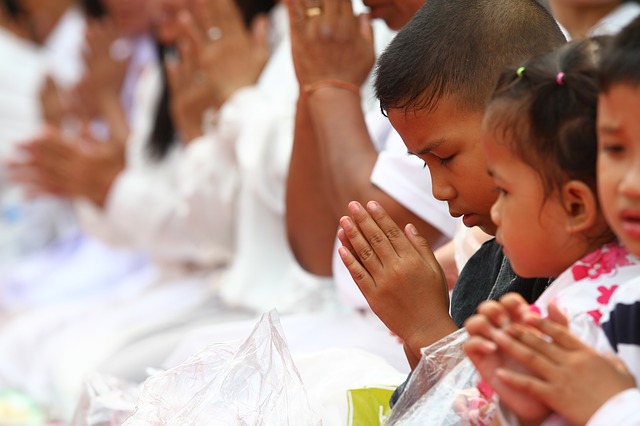
Meditate, pray and worship (Mariano Pérez) (also on the association’s website)
In this article, the author discusses the difference between these three actions, which are often confused in our religious practice. In his introduction, he states: “For those who seek the Truth, Beauty and Goodness that exists in Creation and in the hand that directs it, it is of utmost importance to be clear about these concepts and techniques in order to apply them in their daily lives and to evolve in the perfection of the soul. Meditation, prayer and worship are precious and very necessary tools for those who truly want to achieve one day, in this life or later in their future existence, the true objective of our endeavors: The union with our inner Being with the divine spirit that dwells within us.”

Was the crucifixion really necessary? (Ken Glasziou) (also on the association’s website)
Thus, with that question, the author begins his essay. A question whose answer begins with “it depends on each person’s theology” and which continues by alluding to the doctrine of atonement. Curiously, the author points out that “although it is mentioned in the gospels and in the epistles of the New Testament, it is doubtful that the doctrine of atonement was of great importance to the first Christian communities.” It was much later when the ideas of Saint Augustine of Hippo about original sin and that we are all born in a state of guilt and condemnation were those that were propagated and gained importance in later Christian theology. The author also reflects on the attitude that we as readers should have towards those who believe in it, in light of the teachings of The Urantia Book.

The transformative revelation. Personal transformation (Javier Martínez)
In this presentation, the author expresses the transformation that the revelation contained in the pages of The Urantia Book brings about within us, both from a theoretical (conceptual) and practical (daily life) point of view. The author points out that the book answers the great questions that we ask ourselves as members of humanity and not only that: it encourages us to put its teachings into action, in the form of service to our fellow human beings with love and respect. Because we must not only intellectually assimilate the teachings of the book, but also apply them in our daily lives.

Anova (Jean Royer) (also on the association’s website)
The book speaks at length about the age of light and life, in which a planet reaches a state that we could define as heaven on earth. But there is an interesting reference to a world, Anova, which the revelators tell us is the oldest inhabited world in the Satania system to which we belong. The author takes that reference and, from other statements in the book, deduces (according to his interpretation) that this world is in the seventh stage of light and life.
¶ History and teachings: Chronicle of the life of Jesus
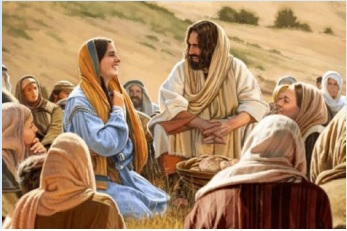
JOURNALISTIC ACCOUNT OF THE LIFE AND TEACHINGS OF JESUS ACCORDING TO THE URANTIA BOOK
We present to you the next installment of the chronicles of the life of Jesus, which on this occasion contains what the revelators tell us in paper 149 (The second preaching tour). Inside the PDF you will see a button from which you can access the text of the document from the Urantia Foundation website.
¶ Urantia Book Children’s Guide: Jesus at Age 15
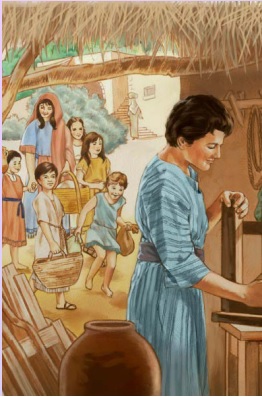
We continue reviewing the secondary work A Child’s Guide to The Urantia Book, by Mary Livingston.
This is the next chapter, which is about Jesus at fifteen years old, and it begins like this:
«Mary had a baby girl whom they named Ruth. Jesus did everything he could to make his mother feel good. He really loved baby Ruth very much. He acted like a good father-brother to all the children.
»James was then 11 years old, Miriam 10, Joseph 8, Simon 7, Martha 6, Judah 4, Amos 2, and now the newborn arrived. It was necessary to care for and feed all these children.»
Download the full chapter in PDF format
¶ Other books on spiritual growth
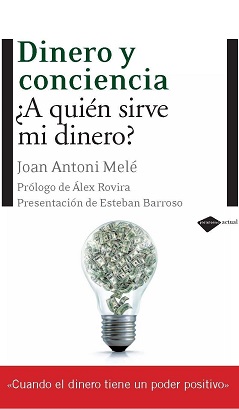
Money and conscience: who does my money serve? (Joan Antoni Melé)
How many times have we lamented that it is money that moves the world, that it is the origin of many wars and injustices? In this sense, precisely the fact that it is money that makes the world move can turn it into a powerful weapon precisely to improve society. This essay delves into this idea to show the importance of each individual in the functioning of the market and the power that they are capable of exercising in it. In the words of the author: “if we all change our way of thinking, being, acting and investing our money, the functioning and direction that the economic model takes will change… the power of the citizen does not reside so much in his vote as in the direction in which he directs his money, his way of consuming and investing his savings.”
¶ Recommended audio
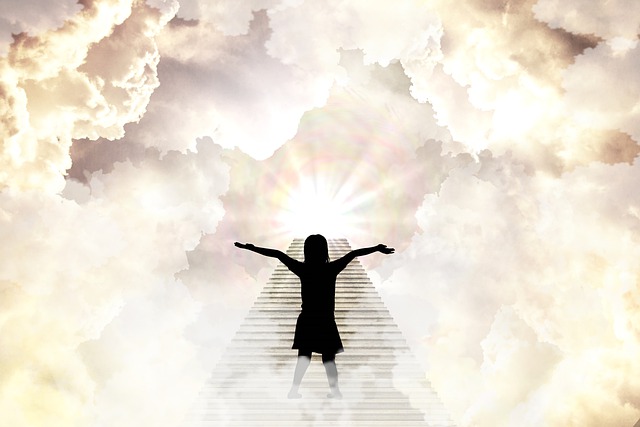
Transcendence, by Ernesto Veloso (“Light and Life” Space on Radio Urantia)
In this installment of Radio Urantia’s “Light and Life” space the author begins by saying that transcending this world was always a great concern for him, even before learning the teachings of the book. According to the author, Jesus demonstrated the fallacy of death with his resurrection, but will we all survive? Nobody knows how far God’s mercy can go, and it is clear that not all of us will survive. Furthermore, the fact that it is an experimental planet makes us walk blindly, but that does not justify us choosing to do evil. The author also reviews some of the existing theories on the subject of survival after earthly life, and relates the possibility of survival with free will, in light of the teachings of the book.
¶ Navigating through life: Dandelions

A man who was very proud of the grass in his garden one day discovered that a large number of dandelions were growing in said grass. And although he tried by all means to get rid of them, he could not prevent them from becoming a real plague.
In the end he wrote to the Ministry of Agriculture, describing all the attempts he had made, and concluded the letter by asking: “What can I do?” Shortly afterwards the response arrived: “We suggest you learn to love them.”
I also had a lawn that I was very proud of, and I also suffered from a plague of “dandelions” that I tried to combat with all the means at my disposal. So learning to love them was not easy at all.
I began to speak to them every day in a cordial and friendly manner. But they only responded with their sullen silence. They were still smarting from the battle I had waged against them. They were probably suspicious of my motives.
But I didn’t have to wait long for them to smile again and regain their peace. They even responded to what I said to them. Soon we were friends.
Of course my lawn was ruined, but how lovely my garden became!
Little by little he was going blind, even though he tried to prevent it by all means. And when the medicines no longer worked, he had to fight with all his emotions. I myself needed to muster up the courage to tell him: “I suggest you learn to love your blindness.”
It was a real struggle. At first he resisted making contact with her, resisted saying a single word to her. And when he finally managed to speak to his blindness, his words were angry and bitter. But he kept talking and, little by little, the words became words of resignation, tolerance and acceptance… until one day, to his surprise, they became words of sympathy… and love. The moment had come when he was able to put his arm around his blindness and say: “I love you.” And that day I saw him smile again. And what a sweet smile!
Naturally he had lost his sight forever. But how beautiful his face became! Much more beautiful than before blindness overtook him.
(Anthony de Mello)
¶ My favorite paragraph — José Manuel Díaz

The difficult legacy that the Master left us
An eye for an eye, a tooth for a tooth, a life for a life… is the vengeful attitude of retaliation that society adopted in primitive times and that all tribes in the process of evolution followed (Cf UB 70:10.9). Much later, this recognition was put in writing and considered the law of Moses.
Jesus’ response to this supposed law of Moses - which he totally disapproved of, since he rejected any concept of resentment or private revenge (Cf UB 140:8.5) - was: “Your rule is not to be measure for measure… You shall return good for evil” (UB 140:6.9). He dared to propose the novel idea of “doing something positive to save the evildoer instead of following the old principle of retaliation” (UB 159:5.11). “My disciples must not only stop doing evil, but learn to do good” (UB 156:2.7). Jesus abhorred both the idea of revenge and the idea of resignation to being a passive victim of injustice. So he boldly proposed this third way to the conflict.
¶ Urantian Questionnaire — Fernando Carazo
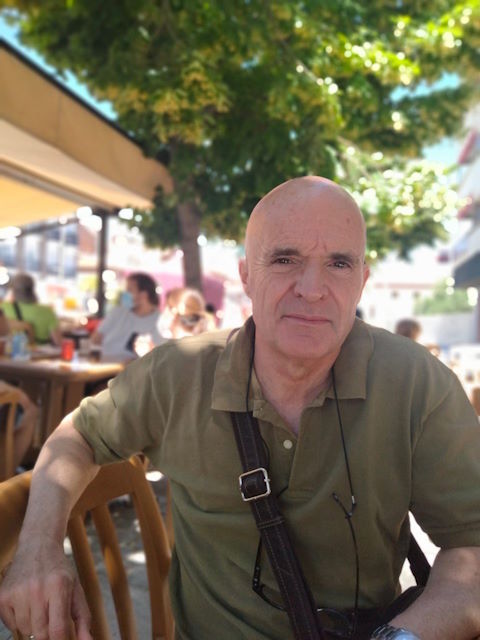
I am Fernando Carazo, I live in Madrid. I have two professional profiles: initially as an operating systems analyst-programmer in technology companies and later I retrained, as I am also a clinical psychologist and opened my own practice. I am currently retired early and I dedicate myself to playing sports, studying Physics and The Urantia Book. I also take care of my mother who is very old and quite deteriorated. I am divorced and have two adult daughters who live and work abroad.
1. How did you come across The Urantia Book and why do you think you found it?
I came across The Urantia Book in 2000 but couldn’t get past the Prologue. I wasn’t used to continuing to read if I didn’t understand the text, so I was stuck for quite a while. Later, in 2007, I decided that I had to continue, even though I didn’t fully understand the concepts, and I finished reading it completely in 2009. Since then I have studied it in depth, on my own and as a member of study groups, especially in the Madrid group and the virtual ones.
I came across The Urantia Book thanks to reading The Lucifer Rebellion by J.J. Benítez. I have always been interested in reading books about mystery, philosophy, religion, science, etc. This book drove me crazy. I couldn’t conceive how a fantasy book could describe what it called “the fifth revelation” as something invented and I decided to look for the source. Searching on the Internet I found many references to the fact that, in reality, both The Lucifer Rebellion and the Trojan Horses saga were plagiarism of a book called The Urantia Book. That’s where it all began.
¶ UBIS “In the Spotlight” Presentation Series
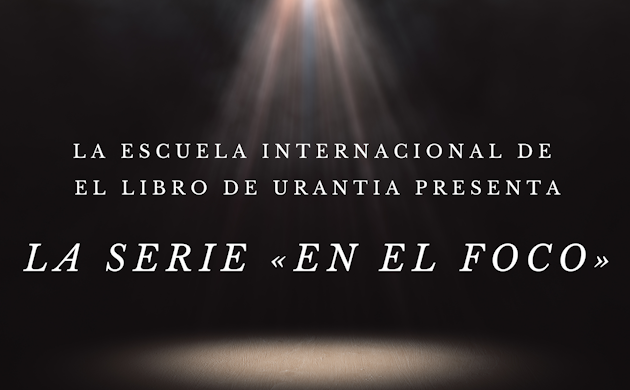
The Urantia Book International School (UBIS) offers a series of “In Focus” webinars related to topics from The Urantia Book or the community of readers.
In the Spanish language, sessions last between 60 and 90 minutes, and are held one Saturday a month at 6 pm (Madrid, Paris, Rome time). The presenter gives an introductory presentation on the topic in question, after which there is an opportunity for attendees to participate in a debate.
This is the presentation scheduled for the month of October:
Day: Saturday, November 4
Time: 18:00 hours CET (Madrid, Paris, Rome)
Title: The local universe of Nebadon: physical aspects
Presented by: Santiago Rodríguez
Zoom Room: https://urantia-org.zoom.us/j/5136302555
You can watch the video of the previous session at this link
https://youtu.be/z2PZ_nBF-Tw?si=GS4VyoKSqlwYl7Yl
¶ Urantia Talks for the month of November

The Urantia Association of Spain has resumed the “Urantian talks”, Zoom sessions in which a presenter offers a starting topic, followed by a moderated debate among the attendees. The talks are biweekly (every other Friday).
These are the talks scheduled for the month of November:
Friday 10: Self-control as a measure of spiritual progress (Olga López)
Friday 24: Acquiring self-control (Jaime Marco)
Place: Zoom room of the Association
Time: 7:00 p.m. (Spanish peninsular time)
¶ About the Luz y Vida newsletter

Luz y Vida is the newsletter of the Urantia Association of Spain. From 2005 to 2016 it was published in PDF format and distributed by post and email to the association’s reader list, but is currently distributed in newsletter format from HTML content.
If you wish to receive the newsletter in your email, contact the association to be subscribed to the recipient list.
All work and news from readers and study groups are welcome, so if you wish to share any secondary work, writing, outline, image, etc., you can send it to the association and we will publish it after evaluating its suitability. Likewise, the Communications Committee of the board of directors of the Urantia Association of Spain reserves the right to edit it to meet minimum spelling quality standards.
¶ References
- Index of the magazine “Luz y Vida” of the Association of Spain
- This article from the magazine “Luz y Vida Online”
- Index of the magazine “Luz y Vida Online”